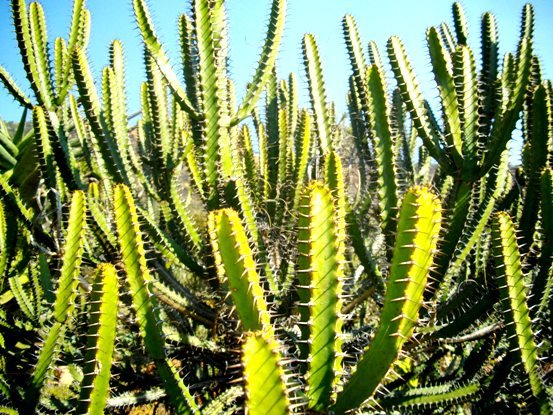Euphorbia sekukuniensis resembling a cheering crowd

This crowd of healthy green Euphorbia sekukuniensis stems live in comfort. Botanical gardens provide favourable conditions that remove some of the hardships faced by plants in habitat. Some of this comfort is afforded by the selection of plants that are compatible with the conditions that prevail in the terrain of the garden, rather than by the way a plant is treated once there.
This is why South Africa has ten national botanical gardens, representing different soils and altitude, but also seasonal patterns of temperature, rainfall, wind and pollinators, offering select glimpses into the diversity of South African vegetation. Unique conditions suiting particular sets of plants make each garden a distinctive experience for the visitor. These gardens are not often enough considered by tourists planning their sightseeing itineraries. Every one of the conservation gardens has a landscaped section, as well as a natural vegetation component, presenting what grows locally when some of the human threats are on the other side of the fence.
The conditions at the Walter Sisulu National Botanical Garden on the Witwatersrand west of Johannesburg clearly suit this E. sekukuniensis plant, an immigrant from Sekhukhuneland. Note the occasional twisting in the angular stems and the length of smooth growth between the stem constrictions that are caused by the slowing of growth during rest periods.

